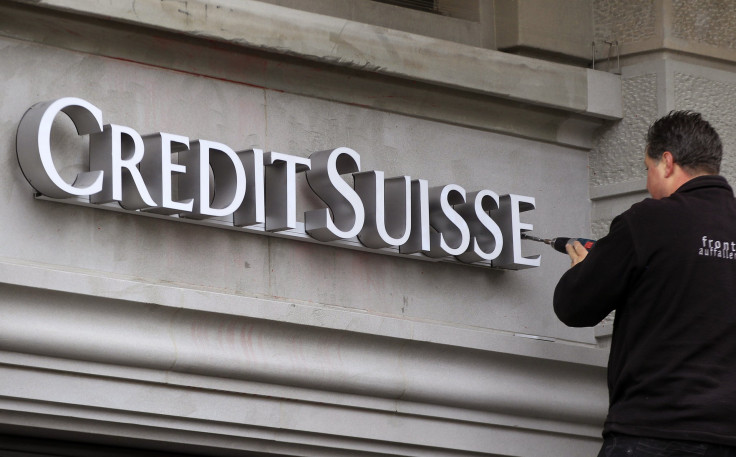Labor Department Proposes To Waive Sanctions Against Credit Suisse: Too Big To Punish?

The U.S. Department of Labor is proposing to waive sanctions against Credit Suisse Group AG (NYSE:AG) that would prevent it from managing pension money in the wake of the bank pleading guilty to criminal charges. The little-noticed waiver was outlined in an announcement published in the Federal Register. The government will accept public comment on the proposal until mid-October, and then make a final decision.
The proposed waiver from federal sanctions comes amid criticism that the Obama administration has gone too easy on major financial institutions that break the law. The proposed waiver for Credit Suisse, whose employees were major financial backers of Obama's election campaigns, also comes a few months after a study showed a linkage between campaign contributions and lighter enforcement actions by federal agencies.
In its announcement outlining the waiver, the Department of Labor notes that Credit Suisse "operated an illegal cross-border banking business that knowingly and willfully aided and assisted thousands of U.S. clients in opening and maintaining undeclared accounts" and in "using sham entities" to hide money. The bank pled guilty to felony charges in May.
Under existing Department of Labor rules, the conviction would prevent Credit Suisse from being designated a "Qualified Professional Asset Manager" (QPAM). That designation exempts firms from other federal laws, giving them the special status required to do business with many pension funds. The Obama administration's proposed waiver would exempt Credit Suisse from existing anti-criminal sanctions, and allow Credit Suisse to get the QPAM designation.
Credit Suisse declined International Business Times request for comment.
The Federal Register announcement notes that Credit Suisse has assets of nearly $1 trillion, and that if the anti-criminal provisions in federal rules were enforced, the bank said it would lose its ability to offer high-yield bonds, commodities futures and other alternative investment products to federally regulated pension funds. The announcement asserts that the Credit Suisse entities that specifically conduct pension business "are independent of" and "not influenced by Credit Suisse AG’s management and business activities." The Department of Labor also argues in its announcement that the waiver "provides additional protection to (pension) plans and IRAs because it requires a prudently selected, independent auditor" to monitor Credit Suisse.
In June, Bloomberg News reported that federal prosecutors have successfully pushed U.S. government agencies to allow Credit Suisse to avoid many regulatory sanctions that could have accompanied its criminal conviction.
"The New York Fed said last month that the bank can continue handling government securities as a so-called primary dealer," reported the news service. "The SEC let the firm continue as an investment adviser while the agency considers a permanent waiver."
Pensions and Investments magazine has reported that despite Department of Labor assurances of tough enforcement of its sanctions against convicted financial firms, the agency has "granted waivers for all 23 firms seeking individual waivers since 1997."
Critics say that by using such maneuvers, the Obama administration is effectively cementing a "too big to jail" doctrine. That criticism intensified in 2012 and 2013, when top Justice Department officials defended the administration's reluctance to prosecute banks by publicly declaring that the government considers the potential economic impact of such prosecutions. Those declarations echoed an earlier memo by Attorney General Eric Holder, which stated that officials could take into account "collateral consequences" when deciding whether to prosecute major corporations.
According to data compiled by the Sunlight Foundation, employees of Credit Suisse have given President Obama's campaigns more than $376,000. In April, a study of SEC data from London Business School professor Maria M. Correia showed that "politically connected firms are on average less likely to be involved in ... enforcement action and face lower penalties if they are prosecuted."
© Copyright IBTimes 2025. All rights reserved.






















